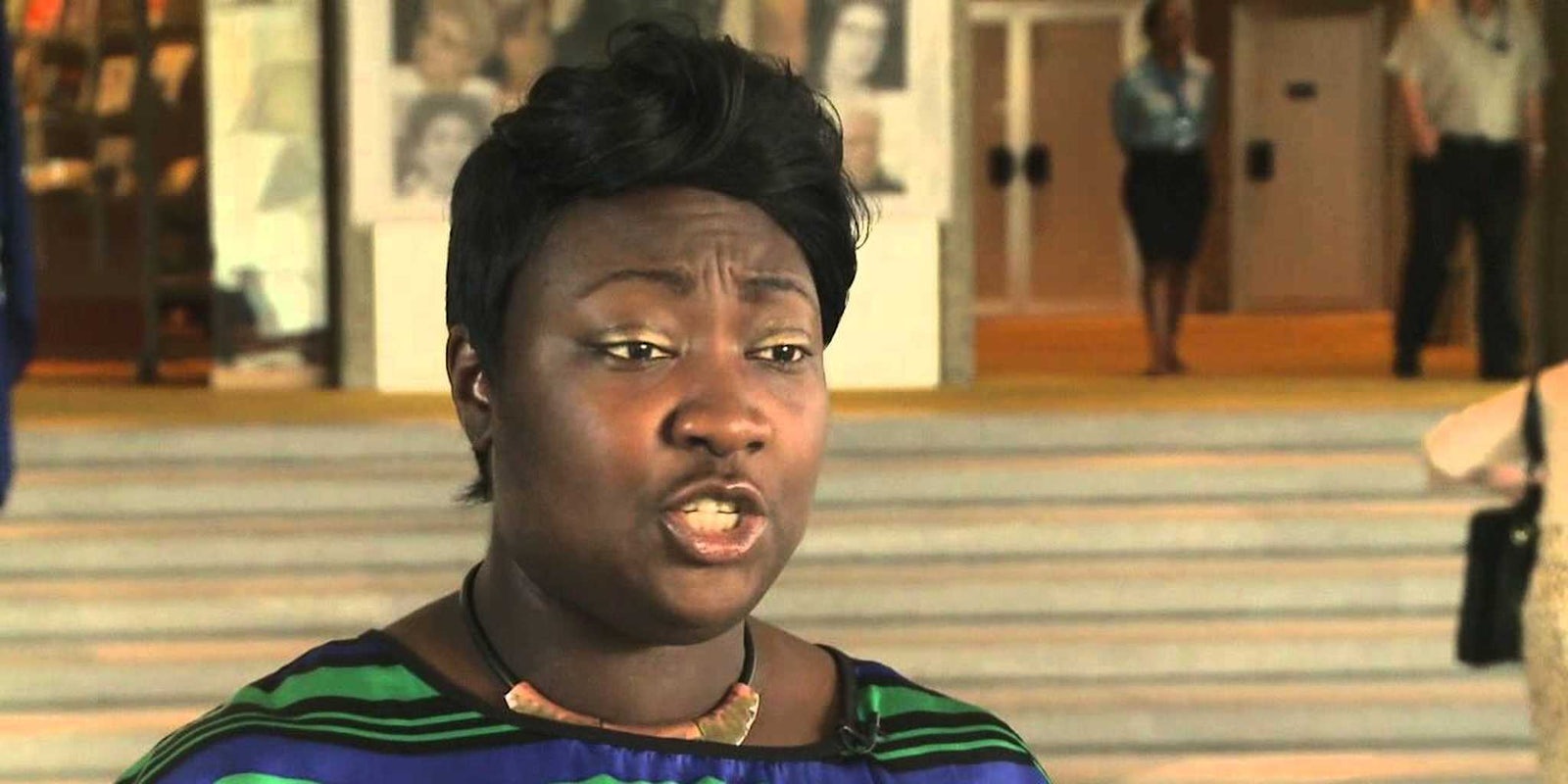While many see the U.K. Honours system as an outdated but harmless way of recognizing those who perform invaluable services, Phyll Opoku-Gyimah has a different take. When the founder of U.K. Black Pride was approached about receiving one of her country’s greatest honors, she turned it down—with impassioned reason.
Opoku-Gyimah would have been recognized by the Queen as an MBE (Member of the British Empire), joining ranks with the Beatles and Russell Crowe. But the activist took issue with the Honours system and its references to the British Empire.
As a black lesbian activist, she sits at the intersection of race, gender, and sexuality. These are issues with which the British Empire has a historically shameful relationship. She says this is why she felt unable to accept an MBE—one of 1,200 Honours awarded as part of the Queen’s New Year List—for her activism in the black LGBTQI community.
Opoku-Gyimah explained her decision to Diva magazine:
I don’t believe in empire. I don’t believe in, and actively resist, colonialism and its toxic and enduring legacy in the Commonwealth, where – among many other injustices – LGBTQI people are still being persecuted, tortured and even killed because of sodomy laws, including in Ghana, where I am from, that were put in place by British imperialists.
She added that while she was “honored and grateful” to have her work as an LGBTQI activist recognized, she felt it was incompatible with her identity “as a trade unionist, a working class girl, and an out black African lesbian.”
Twitter was full of support for Opoku-Gyimah’s actions, especially in the black LGBTQI community:
https://twitter.com/Opimva/status/684238833848811520
https://twitter.com/SensiRooster/status/684063987407958016
Super proud of @MsLadyPhyll for turning down an MBE. Who wants to be a member of an empire that is STILL oppressing so many of us! YES!! XX
— Chardine Taylor Stone (@ChardineTaylor) January 4, 2016
Opoku-Gyimah joins a small, but growing, group of black activists who have refused one of the Queen’s Honours because of their discomfort with connotations of the British Empire.
In 2003, British-Jamaican poet Benjamin Zephaniah rejected his OBE because, as he wrote in the Guardian, “I get angry when I hear that word ’empire’; it reminds me of slavery, it reminds of thousands of years of brutality, it reminds me of how my foremothers were raped and my forefathers brutalised.”
More recently, British hip-hop artist Jonzi D turned his refusal of an MBE in 2011 into a show called “The Letter: To Be or MBE,” performed at the Edinburgh festival in August. As a primer, he uploaded a YouTube video which shows him attempting to hand-deliver his refusal letter to Buckingham Palace.
In 2012, Jonzi D told Stage magazine, “I am not going to accept a badge that says I’m a member of the British Empire. My forefathers were victims of the British Empire. I am diametrically opposed to the idea of empire. Man, I’m a Star Wars fan—empire is bad.”
H/T the Independent | Screengrab via PSIglobalunion/YouTube


